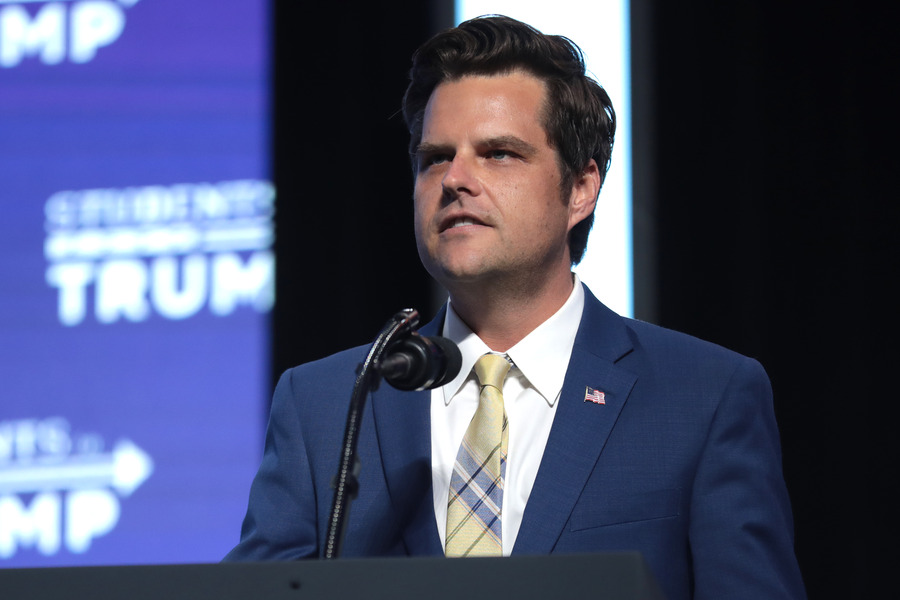Threats, Terrorism, and Domestic Violence
Published by The Lawfare Institute
in Cooperation With

I confess that I don't have a lot of patience for all of the very serious discussion people seem to be having about the case of Elonis v. U.S., which was argued today in the Supreme Court. The question before the court was whether conviction under a federal law banning interstate communication of threats requires that the communications be subjectively intended as threats, or whether it's enough that a reasonable person would have received them as such. In this case, the threats in question were made by Anthony Elonis against his estranged wife (and against an FBI agent) in a series of Facebook posts that would make anyone worry for her safety. They were graphically violent; they continued even after the victim sought and received a restraining order against Elonis; and they were directed at an individual. They included material like this:
There’s one way to love ya but a thousand ways to kill ya, And I’m not gonna rest until your body is a mess, Soaked in blood and dying from all the little cuts, Hurry up and die bitch so I can bust this nut, All over your corpse from atop your shallow grave, I used to be a nice guy, then you became a slut, I guess it’s not your fault you liked your daddy raped you, So hurry up and die, bitch, so I can forgive you
And this:
Fold up your PFA [protection-from-abuse order] and put it in your pocket Is it thick enough to stop a bullet? Try to enforce an Order that was improperly granted in the first place Me thinks the Judge needs an education on true threat jurisprudence And prison time’ll add zeros to my settlement Which you won’t see a lick cause you suck dog dick in front of children And if worse comes to worse I’ve got enough explosives to take care of the State Police and the Sheriff’s Department
Elonis contends that it's not enough to show, to convict him, that such statements---and there were a number of others---would be objectively terrifying when directed at any reasonable person. To avoid infringing on his First Amendment rights, he argues, the government should have to prove that he subjectively intended to threaten. And he didn't, he says, because the Facebook posts in question were all meant as rap lyrics. Writing them was a therapeutic exercise, not anything intended actually to threaten someone else, however they might have been received.
In his claim that his subjective intent matters, remarkably, Elonis has a lot of support. Civil liberties groups have lined up to support him, as have rap music scholars. The Supreme Court press has covered the case actively. And there's actually a circuit split on the question of what constitutes a "true threat." The New York Times, in a sonorous editorial, declares that: "Threats can terrify people and disrupt lives, but in a country devoted to broad speech protections, it is not too much to require the government to prove that a speaker intended to make a threat before it can put him behind bars."
Really? Pardon me, but this doesn't seem like a hard question to me at all. And I really don't care what Elonis intended. I care what he did.
If the threats in question were terrorist threats, I think nearly everyone would react this way. Imagine for a moment that someone like Elonis were fixated on, oh, say, a federal building and he started posting material like this:
There’s one way to build ya but a thousand ways to level ya, And I’m not gonna rest until the building is a mess, Soaked in blood from all the little feds I’ve got enough explosives to take care of the ATF and the IRS.
And let's just say that such posting continued after a visit from authorities and some kind of order to cease threatening behavior, and that one post was taken seriously enough by authorities to require evacuation of the building. Does anyone seriously imagine that this person's subjective intent would not matter a bit in whether he was considered to have made a threat? Does anyone really believe that his claims that these were all just rap lyrics would drape him in the protective embrace of the First Amendment? If you think that, listen to this remarkable episode of This American Life about how seriously---sometimes irrationally seriously---terrorist threats are taken, even when posted on Facebook with far more plausible claims than Elonis's of innocent motivation.
Threats are beyond the protection of the First Amendment because of their effects on other people. That is, they coerce and they induce fear of physical violence. The subjective intent of the threatener is irrelevant to whether the threats have this effect. We criminalize terrorist threats because people should be able to live without fear for their safety. We do it because innocent people have to respond to their fears and take steps to protect themselves. We do it because law enforcement also has to act to protect their safety---with investigations, with building evacuations, with the allocation of resources that could be better directed at other problems. This is all as true for threats of the type Elonis made, though on a smaller scale, as for terrorist threats.
Even if Elonis was just writing rap lyrics, a reasonable woman had to act as though someone was coming to kill her. If people can't see that that's not just speech, perhaps the problem is that we don't take domestic violence as seriously as we take terrorism---or as seriously as we should.


-(1).jpeg?sfvrsn=143eb65_5)
.jpg?sfvrsn=d5e57b75_5)

